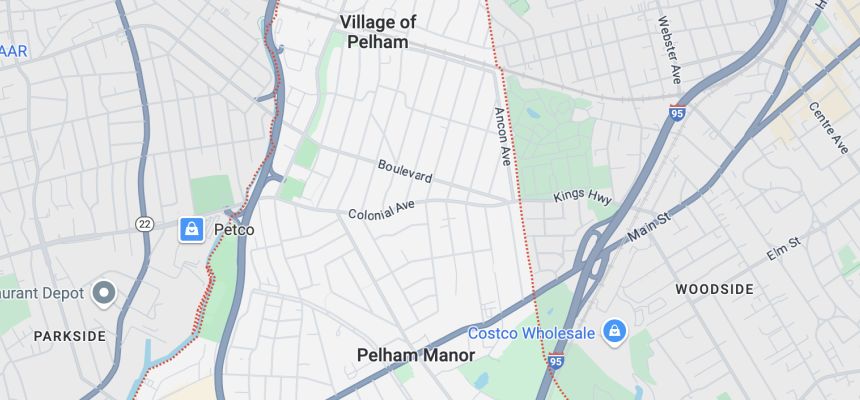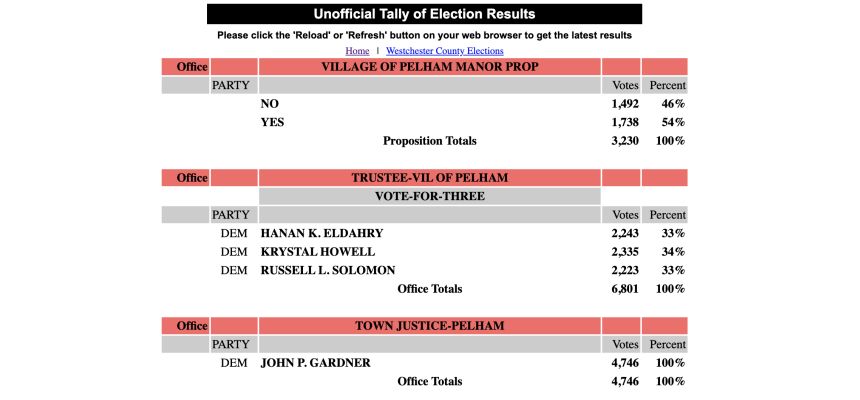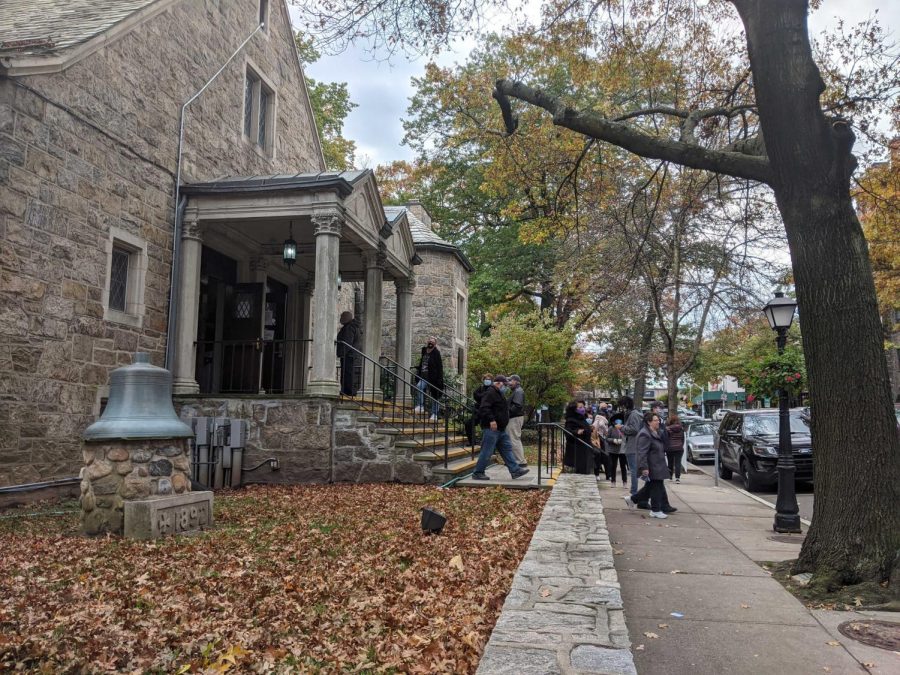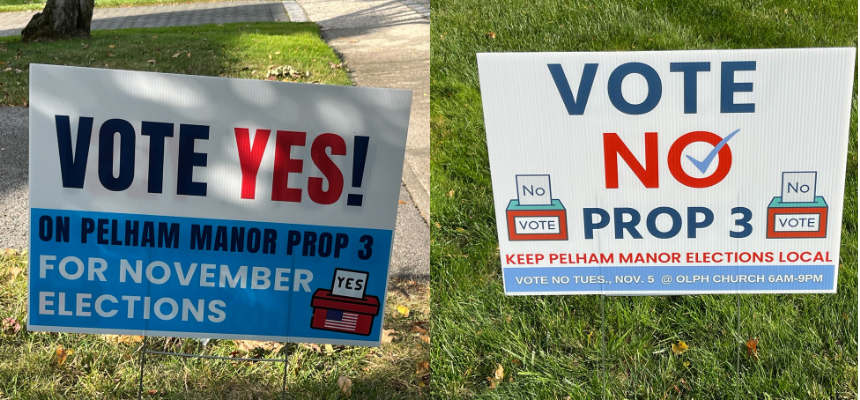State Supreme Court Judge Linda Jamieson declared valid a petition for a referendum to move election day in the Village of Pelham Manor from March to November, overturning the rejection of the 801-signature petition by Village Clerk Lindsey Luft. In Tuesday’s ruling, the judge also ordered the Westchester Board of Elections to put the proposition on the ballot on Nov. 5.
If the referendum is approved, Pelham Manor voters will go to the polls to elect their mayor and trustees on election day in November, rather than the third Tuesday in March.
Erica Winter, an organizer of the Committee to Move the Manor Village Election, delivered the petition on July 1 to Luft, who in her role as village clerk reviewed and rejected the petition four days later, on July 5, according to court papers. Winter and Pelham Democratic Town Committee Chairwoman Allison Frost sued in state civil court on July 8 seeking to reverse that decision and force the proposition on to the November ballot.

“We are thrilled that Judge Jamieson’s decision will give voice to all Pelham Manor voters,” said Winter in a press release from the Committee to Move the Manor Village Election. “November elections have been shown to grow turnout, save our taxpayer dollars and professionalize election processes. Now, the people can decide if that is what is best for our village. This decision puts the power where it belongs: in the hands of our Pelham Manor neighbors.”
In an email, Luft said, “The village is reviewing the decision. It is standard procedure that litigation matters are discussed with legal counsel.” She did not respond to a question on a potential appeal.
The Pelham Examiner has requested comment from Pelham Manor Mayor Jennifer Monachino Lapey.
Judge Jamieson decided all of the reasons Luft gave for rejecting the petition were without merit, according to the judge’s decision and order.
“The court notes at the outset that it has long been settled that a court should not ‘thwart the wishes of voters and discourage the efforts of public officials by declaring some minor step omitted in the statutory procedure fatal, or by over stressing the importance of some technical defect’ in evaluating a petition such as the one before this court,” wrote Judge Jamieson, quoting a previous precedent.
According to a June 18 affidavit signed by Luft, the reasons she provided in a letter to Winter for rejecting the petition included:
- The petition went beyond the statutory language in New York Village Law in that it specifically called for Pelham Manor elections to move to general election day in November, rather than stating only the language from the law for a referendum question in a village: “Whether or not the month of the general election should be changed.”
- The petition called for future village elections to be run by the Westchester Board of Election when state election law permits only the village board of trustees to determine if the board of elections should manage balloting.
- The petition seeks to define what the terms of office will be for the mayor and any trustees already in office before elections move to November.
- A technical deficiency with the petitions, in that the statement of witness (which is the person gathering signatures) at the bottom of every page uses the phrase “subscribed his name in my presence,” rather than—Luft quoting from state election law in the affidavit—”subscribed the same in my presence on the dates above indicated and identified himself or herself to be the individual who signed this sheet.”
‘Never intended to be fair or objective’
However, Jeffrey Gasbarro, attorney for Winter and Frost, countered Luft’s arguments on July 22 with other citations from both New York Village Law and New York Election Law in writing to oppose a motion to dismiss the case and to ask the judge to approve the petition for the referendum. In the case of the deficiency in the witness statement, Gasbarro wrote, the language used in the petition “precisely mirrors” that found in the state’s village law, while the version cited by Luft in her affidavit is required for political party nominating petitions and found instead in the election law.
“The village clerk’s hyper-technical analysis of the wording of the witness statement further establishes that the village clerk’s review of this petition was never intended to be fair or objective,” Gasbarro wrote.
He also wrote that the petition needed to specify general election day in November—or some date—for the change because literally enforcing the language Luft required would produce the “absurd result” that the petition could not even list the month the election would be moved to by the proposed ballot proposition. Further, state election law says that a proposition is permitted to “change ‘the date’ of the general village election,” he said.
Judge Jamieson generally agreed with Gasbarro’s stated arguments, while adding additional facts and court precedents in her decision.
The current fight comes six years after a previous effort failed when then Village Manager and Village Clerk John Pierpont rejected a petition in 2018 for a referendum on moving election day because he said 162 of the 532 signatures were invalid, meaning the petition missed the 400-signature minimum. Additionally, he said the petition did not have the required page numbers. Pierpont’s decision was upheld in state court.
In the Village of Pelham, residents voted to move elections to November in 2019. That petition was initially rejected by then Village Clerk Terri Rourke, also due to an absence of page numbers, but the village board of trustees voted 5-2 before the election in March 2019 to include a referendum on that ballot. The proposition was approved 812 to 498.
(This story adds the judge’s ruling in the case to an earlier version published July 30.)
- The Pelham Examiner delivers the facts when news breaks in town. Donate to support our nonprofit community newspaper.






